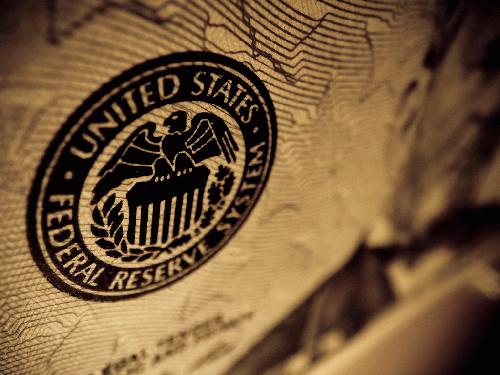From Scheer Post
The Fed's policy tools -- interest rate manipulation, quantitative easing, and "Special Purpose Vehicles" -- have all failed to revive local economies suffering from government-mandated shutdowns. The Fed must rely on private banks to inject credit into Main Street, and private banks are currently unable or unwilling to do it. The tools the Fed actually needs are public banks, which could and would do the job.
On November 20, US Treasury Secretary Steven Mnuchin informed Federal Reserve Chairman Jerome Powell that he would not extend five of the Special Purpose Vehicles (SPVs) set up last spring to bail out bondholders, and that he wanted the $455 billion in taxpayer money back that the Treasury had sent to the Fed to capitalize these SPVs. The next day, Powell replied that he thought it was too soon -- the SPVs still served a purpose -- but he agreed to return the funds. Both had good grounds for their moves, but as Wolf Richter wrote on WolfStreet.com, "You'd think something earth-shattering happened based on the media hullabaloo that ensued."
Richter noted that the expiration date on the SPVs had already been extended; that their purpose was "to bail out and enrich bondholders, particularly junk-bondholders and speculators with huge leveraged bets"; and that their use had been "minuscule by Fed standards." They had done their job, which was mostly to be "a jawboning tool to inflate asset prices." Investors and speculators, confident that the Fed had their backs, had "created wondrous credit markets that are now frothing at the mouth," making the bond speculators quite rich. However, in Mnuchin's own words, "The people that really need support right now are not the rich corporations, it is the small businesses, it's the people who are unemployed." So why aren't they getting the support? According to Richter,
"Powell himself has been badgering Congress for months to provide more fiscal support to small businesses and other entities because the Fed was not well suited to do so, which was the reason the Main Street Lending Program (MSLP) never really got off the ground."
The reason the Fed is not well suited to the task is that it is not allowed to make loans directly to Main Street businesses. It must rely on banks to do it, and private banks are currently unable or unwilling to make those loans as needed. But publicly-owned banks would. Several promising public bank bills were recently introduced in Congress that could help resolve this crisis.
But first, a look at why the Fed's own efforts have failed.
The Fed Lacks the Tools to Inject Liquidity into the Real Economy
Congress has charged the Federal Reserve with a dual mandate: to maintain the stability of the currency (prevent inflation or deflation) and maintain full employment. Not only are we a long way from full employment, but the stability of the currency is in question, although economists disagree on whether we are headed for massive inflation or crippling deflation. Food prices and other at-home costs are up; but away-from-home costs (gas, flights, hotels, entertainment, office apparel) are down. Food prices are up not because of "too much money chasing too few goods" (demand/pull inflation) but because of supply and production problems (cost/push inflation). In terms of "output," we are definitely looking at deflation. An August Bloomberg article quotes economist Lacy Hunt:
"[A]ccording to the figures of the Congressional Budget Office, the output gap will be a record this year and we will have a deflationary gap. In other words, potential GDP will be well above real GDP. And according to the CBO, we're going to have a deflationary output gap through 2030."
The Fed's monetary policies, it seems, are not working. On November 11 and 12, according to Reuters:
"[T]he world's top central bankers ... tune[d] into the European Central Bank's annual policy symposium ... to figure out why monetary policy is not working as it used to and what new role they must play in a changed world -- be it fighting inequality or climate change.
"Central banks' failure to achieve their targets is beginning to challenge a key tenet of monetary theory: that inflation is always a factor of their policy and that prices rise as unemployment falls."
The Fed adopted a fixed 2% target in 2012. To achieve it, explains investment writer James Molony, they "have implemented unprecedented policies. Interest rates have been slashed, in some cases to near zero, and they have engaged in printing money in order to buy bonds and other assets, otherwise known as quantitative easing."
Lowering the interest rate is supposed to encourage lending, which increases the circulating money supply and generates the demand necessary to prompt producers to increase GDP. But the fed funds rate, the only rate the central bank controls, is nearly at zero; and the equivalent rates in the European Union and Japan are actually in negative territory. Yet in none of these three countries has the central bank been able to reach its inflation target.
(Note: You can view every article as one long page if you sign up as an Advocate Member, or higher).






